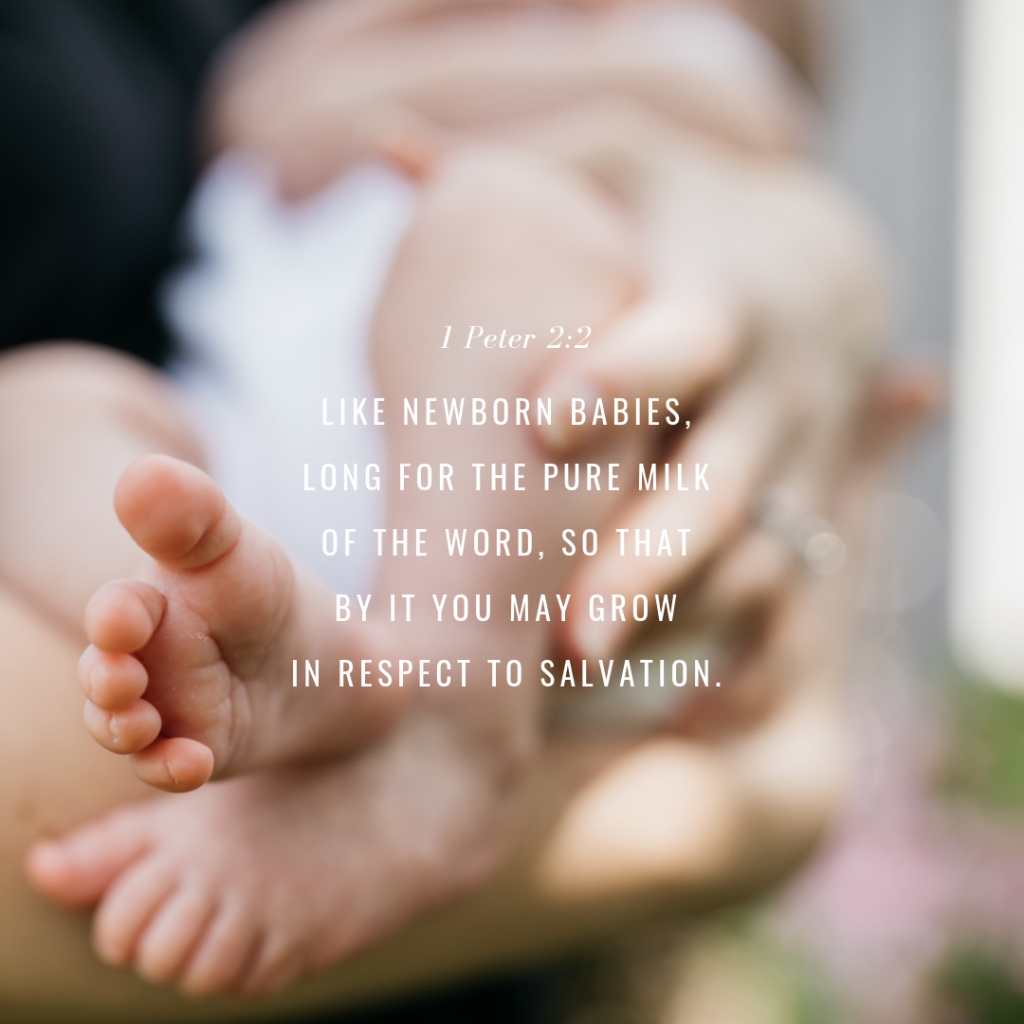The text to be examined in this paper is John 1.1, which is frequently translated in the following way: “In the beginning was the Word, and the Word was with God, and the Word was God.”[1] However, if one were to make some inquiries, it wouldn’t take long to find out that many readers of the Bible hear the text differently. John 1.1 is automatically understood in either one of two ways: “In the beginning was Jesus, and Jesus was with God, and Jesus was God,” or, “In the beginning was the Son, and the Son was with the Father, and the Son was the Father.” The purpose of this study is to determine how the author and his original audience would have understood John 1.1, and to discuss the implications that this conclusion has for readers today.
It is important to begin our search by gathering some basic information about the Gospel of John. The exact identity of the Gospel’s author is disputed, but both liberal and conservative scholars agree that the Evangelist was a Jew who was familiar with the Hellenistic culture of the times.[2] The Gospel has been dated as late as 110 AD and as early as 40 AD, but there is a general consensus among scholars that the Gospel was written around 90-100 AD, for a mixed audience of both Jews and Gentiles.[3] The Gospel opens with a poetic prologue, followed by two main body sections (which have been designated by C.H. Dodd as the “Book of Signs” and “The Book of the Passion”) that are flanked by an epilogue.[4] Of particular importance to keep in mind for this study are the Jewish heritage of the author, and the poetic nature of the prologue.

In the beginning was the Word…
The Gospel of John opens with the statement: “In the beginning was the Word, and the Word was with God, and the Word was God.” What is this beginning that the author refers to? It is commonly recognized that phrase, ‘In the beginning,’ is direct allusion to the original creation account, found in Genesis 1.1.[5] But what of the ‘Word’ that was in the beginning? Based on the author’s direct reference to the creation story, it is likely that the ‘Word’ refers to the effective command of God working in the world. Thus the opening phrase of John is reminiscent of creation, where God, through his all-powerful Word, spoke the world into existence: “God said, ‘Let there be…’ and it was so.”
However, this does not completely clear up the question of what (or who) the ‘Word’ really is. Based on the verses that follow John 1.1, it would seem that the ‘Word’ is not merely a spoken command, but possibly a pre-existent person who was God and was with God in the beginning, as an agent of creation: “He was in the beginning with God. All things came into being through Him, and apart from Him nothing came into being that has come into being.”[6] Is this how the author’s original readers would have understood the ‘Word?’
In John 1.1, ‘Word’ is the English translation of the Greek term logos. The Zondervan Pictorial Encyclopedia of the Bible defines the logos as “word, thought, reason, speech, declaration, logic, revelation, reckoning [or] expression of thought.”[7] The concept of the logos has its roots in Greek philosophical thought and the term was used by both the classical writers and philosophers. Heraclitus, a pre-Socratic Greek philosopher who wrote in the 6th century BC, described the logos as the eternal ‘law’ or ‘reason’; the one constant in an ever-changing world.[8] The Stoics, a philosophical school founded by Zeno in around 300 BC, recovered the teachings of Heraclitus and described the logos “as the mind of God, the principle of reason within the universe, controlling and directing all things.”[9] Coupled with the influence of Platonistic dualism, this understanding of the logos as the ‘mind of God’ or as the ‘ordering principle’ of the universe, profoundly shaped the Hellenistic culture in which the Evangelist wrote.
Though the concept of the logos had roots in the Hellenistic philosophical thought of the time, the Evangelist’s understanding of the logos was derived from a thoroughly Hebraic perspective. In the Septuagint, the Greek translation of the Hebrew Scriptures, the Greek term logos replaces the Hebrew noun davar, which is defined as “speech” or “word” in the Hebrew and English Lexicon of the Old Testament.[10] Davar is used over 1450 times in the Hebrew Scriptures and is frequently included as part of the phrase ‘word of God’ or ‘word of Yahweh.’[11] These phrases, ‘word of God’ and ‘word of Yahweh,’ are commonly found in biblical prophetic material and refer to the prophet’s inspired message, which contains the authoritative will of God.[12]
Though ‘person’ is never recorded as a meaning for the word davar, there are several instances in which the ‘word of God’ is described in such a way that it appears to take on a life of its own. Psalm 33.6 records that “By the word of the Lord the heavens were made…”[13] Psalm 147.15 declares that the “word runs very swiftly” and verse 18 says that “He sends forth his word and melts them.”[14] In recalling the last of the ten plagues of Egypt, Wisdom of Solomon 18.14-16 describes the word of God in very vivid terms:
“For when peaceful stillness compassed everything and the night in its swift course was half spent, Your all-powerful word from heaven’s royal throne bounded, a fierce warrior, into the doomed land, bearing the sharp sword of your inexorable decree. And as he alighted, he filled every place with death; he still reached to heaven, while he stood upon the earth.”[15]
How best to understand these verses? The word of God is clearly spoken of in such way that is it almost appears to be a literal being sent by God to accomplish his workings in the world. Is it possible that the Jews could have conceived that the ‘word of God’ was a person, an independent agent of God?
Texts such as those mentioned above must be balanced against others, such as Jeremiah 5.14, which says “Therefore, thus says the Lord…‘Behold, I am making My words in your mouth fire and this people wood, and it will consume them.’”[16] This passage refers to the inspired message of the prophet, and is instructive because it demonstrates that the Jews were comfortable using colorful descriptions of the word of God as a creative way of expressing the effective power of God’s command.[17] When God speaks, his will is accomplished: his authoritative word will not return void.[18] Surely Jeremiah and the rest of the prophets didn’t conceive the word as an “independent entity divorced from Yahweh;” rather they understood that when they spoke through the inspiration of the holy spirit, “it was precisely the word of Yahweh, the utterance of Yahweh, Yahweh himself speaking.”[19] Thus, the personified word of God is simply a way of describing God’s activity in the inhabited world in creation, revelation, and redemption.[20]
Using personification to speak of the transcendent God’s workings in the world was not uncommon in Hebraic thought. In Proverbs 8, Wisdom is portrayed as a beautiful woman who was with God in the beginning and present at creation: “The Lord possessed me at the beginning of His way, Before His works of old…When He set for the sea its boundary…Then I was beside Him, as a master workman; And I was daily His delight, Rejoicing always before Him.”[21] This is best understood as personification through poetical or metaphorical language, since such personification abounds in Hebrew poetry. For example, ‘righteousness’ and ‘peace’ are described as ‘kissing’ one another in Psalm 85:10-11. It is not surprising therefore, that Wisdom is portrayed as an attractive female, since the word Hebrew for ‘wisdom’ is a feminine noun. Thus to echo James Dunn’s conclusion on the subject, “…pre-Christian Judaism itself gives us no real reason for supposing that they [the Spirit, Word, and Wisdom] were understood as any more than personifications of the one God’s activity towards and in his creation.”[22]
Given that there was no precedent in Jewish thought for a personalization of the word of God, it is most reasonable to conclude that the author of the Gospel of John has personified the word of God. The use of figurative language was common in Hebrew poetry, and it is widely acknowledged that the Johannine prologue is poetic in nature.[23] The poetic character of the prologue needs to be taken seriously, albeit not strictly literally, because the use of poetry leaves room for creativity on the part of the author. In this case, the author has artistically personified the masculine noun, logos, through the use of masculine pronouns, just as the feminine noun, chokmah (‘wisdom’), was personified as a woman in Proverbs 8. Thus it may be seen that the author and the audience of the Gospel of John would have never supposed that the ‘Word’ was a pre-existent person.
[1] John 1.1 (NASB)
[2] F.F. Bruce, The New Testament Documents: Are They Reliable?, (Downers Grove, IL: InterVarsity Press, 1981), 7. James F. McGrath, “John in Sociolinguistic Perspective.” A Survey of Recent Literature of the Fourth Gospel. Version 4. Theological Gathering, 10 Oct. 1997, http://www.earlychristianwritings.com/info/john-survey.html, (accessed 12 Dec. 2013).
Robert Kysar, “John, The Gospel of,” in The Anchor Bible Dictionary, ed. David Noel Freedman, (New York: Doubleday, 1992), 917-923.
[3] Kysar, The Anchor Bible Dictionary, 919-920.
M.M. Thompson, “John, Gospel of,” in Dictionary of Jesus and the Gospels, ed. Joel B. Green and Scott McKnight, (Downers Grove, IL: InterVarsity Press, 1992), 370.
[4] Thompson, Dictionary of Jesus and the Gospels, 373.
[5] F.F. Bruce, The Gospel & Epistles of John: Introduction, Exposition, and Notes, (Grand Rapids, MI.: Eerdmans Publishing Company, 2004), 28.
[6] John 1:2-3 (NASB)
[7] Merrill Chapin Tenney, “Logos,” in The Zondervan Pictorial Encyclopedia of the Bible, (Grand Rapids, MI: Zondervan Publishing House, 1975), 953.
[8] Tenney, The Zondervan Pictorial Encyclopedia of the Bible, 953.
Thompson, Dictionary of Jesus and the Gospels, 376.
[9] Thompson, Dictionary of Jesus and the Gospels, 372.
[10] Francis Brown, S. R. Driver, and Charles A. Briggs, A Hebrew and English Lexicon of the Old Testament, (Oxford: Clarendon Press, 1980), 182.
[11] Figure taken from Dictionary of Old Testament Theology and Exegesis, Vol. 1, 912, as cited by: Anthony Buzzard, “John 1:1 Caveat Lector (Reader Beware),” Restoration Fellowship, http://focusonthekingdom.org/, (accessed December 9, 2013).
[12] James D. G. Dunn, Christology in the Making: A New Testament Inquiry into the Origins of the Doctrine of the Incarnation, (Grand Rapids, MI: William B. Eerdmans Publishing Company, 1989), 217.
[13] Psalm 33.6 (NASB)
[14] Psalm 147.15,18 (NASB)
[15] Wisdom of Solomon 18.14-16 (NAB)
[16] Jeremiah 5.14 (NASB)
[17] Dunn, Christology in the Making, 219.
[18] Isaiah 55:11 (NASB)
[19] Dunn, Christology in the Making, 218.
[20] Bruce, The Gospel & Epistles of John: Introduction, Exposition, and Notes, 29.
[21] Proverbs 8:22,29-30 (NASB)
[22] Dunn, Christology in the Making, 220.
[23] Dunn, Christology in the Making, 239.



